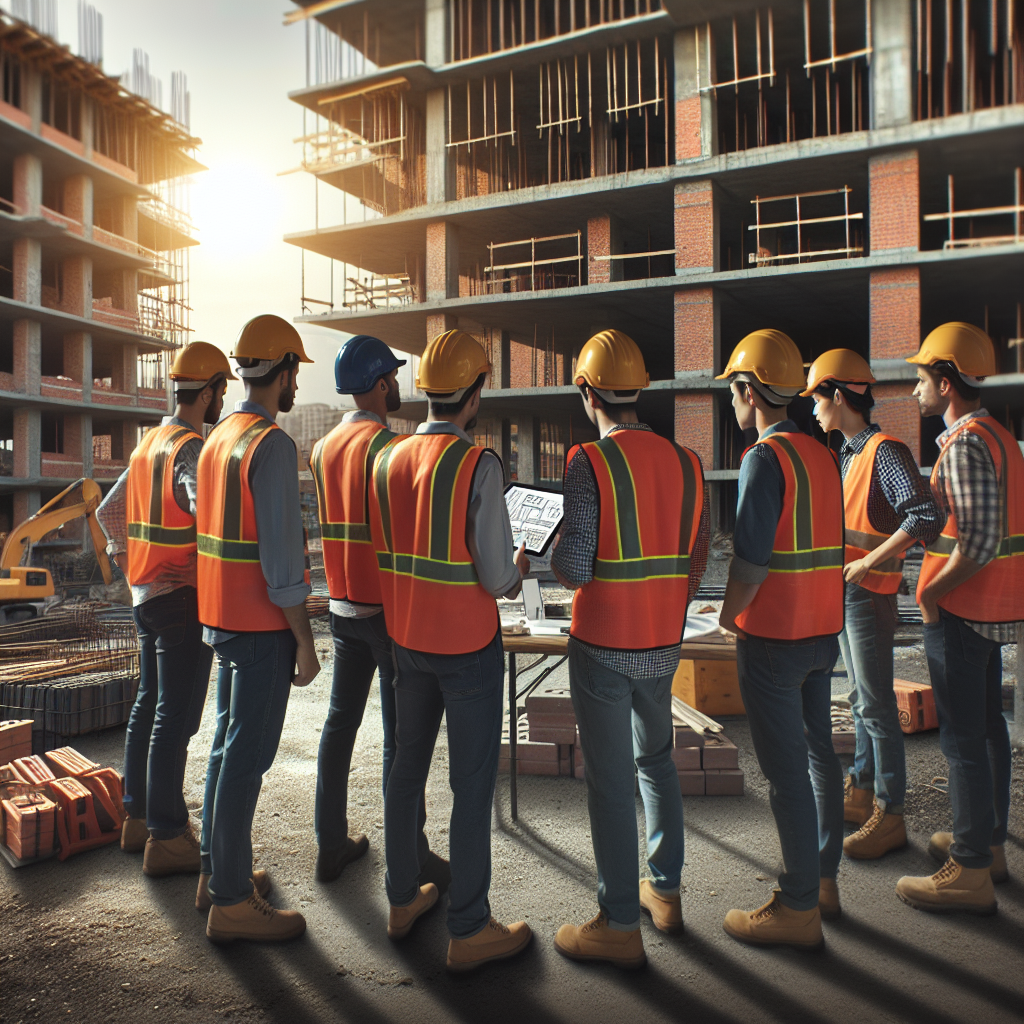How AI-Driven Tools Reduce Construction Costs
The construction industry is undergoing a significant transformation, with AI-driven tools paving the way for greater efficiency and cost savings. As the demand for sustainable and faster construction projects grows, the incorporation of AI in construction has become crucial. This blog post will explore various ways that these advanced tools can help reduce construction costs while improving overall project outcomes.
1. Access to Real-Time Financial Data
One of the most significant advantages of AI in construction is the ability to integrate and analyze data from multiple sources in real-time. Construction financial management tools make it possible for construction executives and CFOs to obtain a comprehensive view of project financials. These tools offer insights into labor and material costs, enabling the early identification of potential cost overruns. This proactive approach allows stakeholders to make informed decisions to keep projects within budget.
2. Streamlining Processes and Workflows
AI automates a myriad of manual processes, including data entry, invoice processing, and change order management. By moving away from provide construction document management systems that rely on siloed spreadsheets and embracing centralized platforms, AI fosters collaboration among all stakeholders. This results in working with consistent and accurate data, which minimizes errors, saves time, and allocates more resources toward cost management and strategic decision-making.
3. Utilizing Data-Driven Insights
Data-driven insights are vital for effective cost management. AI tools analyze historical and real-time data to identify cost trends and potential areas for optimization. For example, AI can forecast future expenses based on past performance, empowering companies to adopt better planning strategies. The ability to pinpoint instances where material costs exceed expectations allows for timely corrective actions, enhancing overall financial planning.
4. Predicting and Preventing Cost Overruns
The use of predictive models, such as Artificial Neural Networks, is instrumental in predicting potential cost overruns. By examining factors like project size and the competence level of project managers, AI can forecast realistic timelines and budgets for future projects. This predictive capability significantly reduces the likelihood of costly errors and delays, ensuring smoother project execution.
5. Optimizing Resource Allocation
AI excels in optimizing the allocation of labor, materials, and equipment by analyzing real-time data and historical trends. Such optimization ensures that resources are used efficiently, ultimately reducing waste and lowering costs. AI tools can track the location of workers and equipment effectively, allowing for prompt adjustments when additional labor is needed to stay on schedule. These capabilities are critical components of effective jobsite management tools.
6. Enhancing Safety and Reducing Accidents
The construction sector has long struggled with safety issues, often leading to serious accidents and increased insurance costs. AI-driven safety systems monitor job sites in real-time, identifying hazards such as non-compliance with protective gear and unsafe machinery operations. By predicting potential safety incidents, AI facilitates a safer working environment that minimizes project delays related to safety concerns, ultimately reducing costs.
7. Automating Repetitive Tasks
Automation is a game-changer in the construction industry. AI tools can perform tasks such as clash detection, project scheduling, and resource allocation more quickly than traditional methods, significantly reducing the time required for these activities. This automation also lowers the risk of human error, expediting project timelines and boosting overall productivity.
8. Improving Design Efficiency
AI-driven generative design is revolutionizing how architects and engineers approach project planning. By inputting specific design goals and constraints into an AI platform, users can receive optimized design options that are both efficient and cost-effective. This innovation speeds up the design process and ensures that final plans are more accurate and less prone to costly revisions, directly impacting construction project management software.
9. Using Autonomous Machinery
Autonomous machinery, such as robots and drones, are becoming increasingly popular on construction sites. These advanced machines can handle tasks including bricklaying, site surveying, and transportation of materials. Operating with high precision, these machines reduce human error and enhance productivity, transforming labor dynamics. Experts predict that up to 30% of construction tasks could be automated by 2025, significantly influencing labor productivity and project timelines.
10. Market Trends and Future Outlook
The AI in construction market is expected to experience significant growth, with a projected compound annual growth rate (CAGR) of 24.31% from 2023 to 2029. This surge, estimated to reach USD 11.85 billion by 2029, is fueled by continuous technological advancements and the widespread adoption of AI across various construction processes, from planning to operational management. Companies that embrace construction tech innovation will likely gain a competitive advantage in this evolving landscape.
How Zepth Can Help
Zepth stands at the forefront of the construction industry’s digital transformation with its cutting-edge project management solutions. By incorporating AI-driven tools, Zepth enhances project outcomes in several ways:
- Real-Time Data Integration: Zepth’s platform integrates various data sources, delivering real-time financial and operational insights that bolster informed decision-making and cost control.
- Automated Workflows: Zepth enables the automation of manual processes, streamlining workflows, and ensuring that all stakeholders work from the same reliable data.
- Predictive Analytics: Utilizing AI, Zepth predicts potential cost overruns, safety hazards, and other risks, implementing proactive measures to maintain project efficiency and safety.
- Resource Optimization: Zepth’s tools allow for optimal resource allocation, ensuring the efficient use of labor, materials, and equipment while minimizing waste and costs.
By leveraging Zepth’s comprehensive solutions, construction companies can unleash the full potential of AI to reduce costs, increase efficiency, and enhance project outcomes. For more information on how Zepth can support your projects, visit Zepth’s website.




